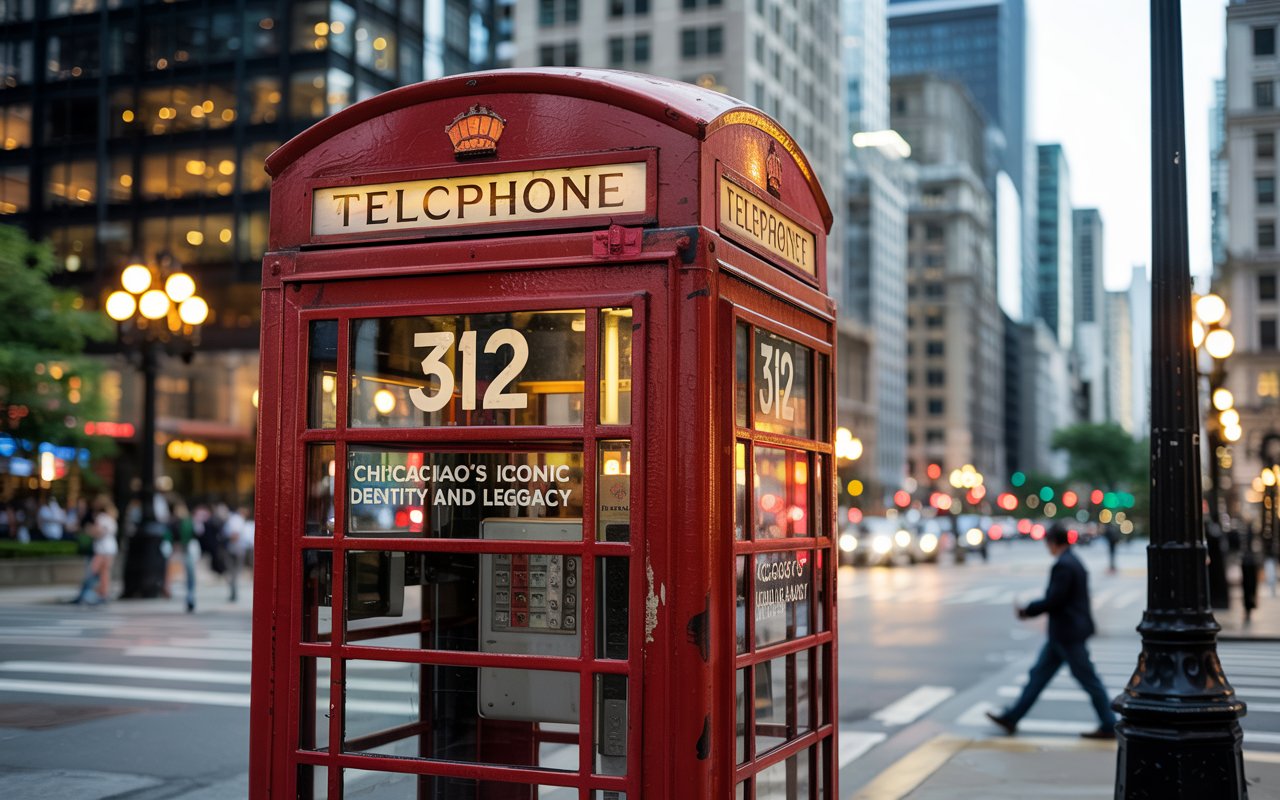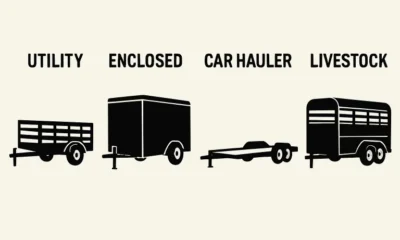General
Navigating the IR-1 and CR-1 Visa Process: A Guide for Spouses of U.S. Citizens

IR-1/CR-1 visas are two types of immigrant visas issued by the United States for spouses of U.S. citizens. These visas are designed to allow the foreign spouse to live and work in the United States as a permanent resident. The main difference between the two lies in the timing of the application and the conditions upon arrival in the U.S.
-
IR-1 Visa (Immediate Relative – Spouse of a U.S. Citizen):
-
The IR-1 visa is intended for spouses of U.S. citizens who have been married for at least two years at the time of filing the visa application.
-
It grants the foreign spouse permanent resident status upon arrival in the United States. This means that they become a lawful permanent resident (LPR) immediately, and they receive a green card.
-
With an IR-1 visa, there is no conditional residence period. The foreign spouse receives a permanent green card and does not need to apply to have the conditions removed after a certain period.
-
-
CR-1 Visa (Conditional Resident – Spouse of a U.S. Citizen):
-
The CR-1 visa is intended for spouses of U.S. citizens who have been married for less than two years at the time of filing the visa application.
-
It initially grants the foreign spouse conditional permanent resident status upon arrival in the United States. They receive a green card, but this green card is valid for two years.
-
Within the 90-day period before the expiration of the conditional green card, the foreign spouse and their U.S. citizen spouse must jointly apply to remove the conditions and obtain a regular (10-year) green card. This involves proving that their marriage is still genuine and not a sham.
-
How to apply for IR-1/CR-1 visa
Applying for an IR-1 or CR-1 visa for your spouse involves a multi-step process. Here’s a general outline of the steps you need to follow:
-
File a Petition:
-
As a U.S. citizen, you need to start the process by filing Form I-130, Petition for Alien Relative, with U.S. Citizenship and Immigration Services (USCIS). This form establishes the qualifying relationship between you (the U.S. citizen) and your foreign spouse.
-
-
USCIS Processing:
-
USCIS will review your petition to ensure it is complete and accurate. They may request additional evidence or information.
-
Once your petition is approved, USCIS will send you an approval notice.
-
-
National Visa Center (NVC) Processing:
-
After USCIS approval, the case is transferred to the National Visa Center (NVC). You will need to pay the necessary fees and provide additional documentation to the NVC.
-
The NVC will assign a case number and process your application for visa interview scheduling.
-
-
Consular Processing:
-
The NVC will transfer your case to the U.S. embassy or consulate in your spouse’s home country.
-
Your spouse will receive instructions for scheduling a medical examination and visa interview at the U.S. embassy or consulate.
-
-
Medical Examination:
-
Your spouse must undergo a medical examination by an approved panel physician. The results of this exam are typically sent directly to the U.S. embassy or consulate.
-
-
Visa Interview:
-
Your spouse will attend a visa interview at the U.S. embassy or consulate. During the interview, they will be asked questions about their background, relationship, and intentions in the U.S.
-
It’s crucial to bring all required documentation to the interview, including the original USCIS approval notice, passport, visa application forms, and any requested supporting documents.
-
-
Visa Issuance:
-
If the consular officer approves the visa application, your spouse will receive an immigrant visa in their passport.
-
-
Travel to the U.S.:
-
Once the visa is issued, your spouse can travel to the United States. They should not travel before the visa’s validity date.
-
-
Port of Entry:
-
Your spouse will go through customs and immigration at a U.S. port of entry. They should present their visa and other required documents.
-
-
Conditional or Permanent Green Card:
-
Depending on whether you applied for an IR-1 or CR-1 visa, your spouse will either receive a permanent green card or a conditional green card upon arrival in the U.S.
-
-
Conditional Green Card (CR-1) Removal:
-
If your spouse received a CR-1 visa and a conditional green card, you will need to apply to remove the conditions within the 90-day period before the card expires. This involves filing Form I-751, Petition to Remove Conditions on Residence.
-
IR-1/CR-1 visa checklist
Preparing a thorough checklist can help ensure you have all the necessary documents and information when applying for an IR-1 or CR-1 visa for your spouse. Below is a checklist to help you get organized:
Before You Begin:
-
Eligibility: Make sure you meet the eligibility criteria as a U.S. citizen and that your spouse qualifies as a family member for this type of visa.
-
Marriage Certificate: You must be legally married to your spouse. Gather your original, government-issued marriage certificate.
-
Financial Sponsorship: Be prepared to demonstrate that you have sufficient income or assets to support your spouse in the U.S. (typically by filing an Affidavit of Support).
Petition Filing (Form I-130):
-
Form I-130: Complete and sign Form I-130, Petition for Alien Relative. Ensure accuracy and consistency in the information provided.
-
Supporting Documents for I-130:
-
A copy of your U.S. passport or birth certificate to prove your U.S. citizenship.
-
A copy of your spouse’s passport.
-
Marriage certificate (original or certified copy).
-
Any divorce or death certificates, if either you or your spouse were previously married.
-
Proof of a bona fide marital relationship, such as photos, joint bank accounts, shared property, or correspondence.
-
-
Filing Fee: Include the required filing fee for Form I-130, payable to the U.S. Department of Homeland Security.
National Visa Center (NVC) Processing:
-
NVC Case Number: After USCIS approves your I-130 petition, you will receive a case number from the NVC. Keep this number for reference.
-
Affidavit of Support (Form I-864):
-
Complete Form I-864, Affidavit of Support, to demonstrate your financial ability to support your spouse in the U.S.
-
Include supporting documents, such as tax returns, W-2s, and proof of current employment or assets.
-
-
DS-260 Application: Complete the online DS-260 immigrant visa application form for your spouse. This is done through the Consular Electronic Application Center (CEAC).
-
Civil Documents:
-
Obtain and provide civil documents, such as birth certificates and marriage certificates, for your spouse and any accompanying children.
-
Ensure that these documents are properly translated into English if necessary.
-
Consular Processing:
-
Visa Fees: Pay the visa application fee(s) as required by the U.S. embassy or consulate where your spouse will have the interview.
-
Medical Examination: Schedule and complete the required medical examination with an approved panel physician. The results will be sent directly to the embassy or consulate.
-
Supporting Documentation:
-
Prepare any additional documents requested by the specific U.S. embassy or consulate. Requirements can vary, so check their website for guidance.
-
Gather any additional evidence of your relationship, such as letters of support from family and friends.
-
-
Visa Interview Appointment: Follow the instructions from the embassy or consulate to schedule and attend the visa interview.
After Visa Approval:
-
Travel Arrangements: Once the visa is issued, make travel arrangements for your spouse to enter the U.S.
-
Port of Entry: Ensure your spouse has all necessary documents, including the visa, passport, and sealed medical examination results, for inspection at the U.S. port of entry.
-
Green Card Application (CR-1 Only): If your spouse receives a CR-1 visa, prepare to file Form I-751 to remove the conditions on their residence within the appropriate timeframe.
General
312 Area Code Chicago’s Iconic Identity and Legacy

The 312 Area Code stands as one of the most iconic numeric identifiers in American telecommunications history. Rooted in the heart of Chicago, it signifies more than just a routing number for phone calls. It reflects the city’s cultural identity, economic vibrancy, and historical depth.
Introduced in 1947 as part of the original North American Numbering Plan (NANP), the 312 Area Code was initially assigned to cover the entire Chicago metropolitan region. Over the decades, urban growth, technological expansion, and population surges led to numerous splits and overlays, but 312 remained a core symbol of downtown Chicago. As a result, it became synonymous with power, prestige, and legacy.
The journey of the 312 Area Code isn’t merely about numbers. It’s about evolution, adaptation, and how one sequence of digits became etched in the urban fabric of one of America’s greatest cities.
The Origin of the 312 Area Code
In 1947, the Bell System introduced area codes to streamline long-distance dialing. At that time, 312 was designated for all of northeastern Illinois, including Chicago. This simple code was one of the 86 original area codes introduced nationwide.
Because of its central location in Illinois and its economic significance, 312 quickly became a focal point in the nation’s communication network. Initially, few could have predicted the cultural importance it would come to hold.
The Impact of Growth on the 312 Area Code
Over time, Chicago’s population expanded rapidly. As residential neighborhoods grew and suburbanization increased, demand for new phone numbers skyrocketed. By the early 1980s, pressure on the 312 Area Code became unsustainable.
To relieve this pressure, a major split occurred in 1989. The newly created 708 Area Code was assigned to the suburban regions surrounding Chicago, leaving 312 to serve only the city proper. Yet even with that adjustment, the number of new phone users continued to climb.
In 1996, another split carved out the 773 Area Code to cover areas outside of downtown, while 312 was confined to the Loop and the Near North Side. These boundaries gave 312 an even more exclusive footprint, enhancing its status as a digital badge of urban identity.
The Cultural Status of 312
Today, the 312 Area Code is more than a technical label—it’s a symbol of authenticity and city pride. Businesses proudly display 312 numbers to signal their downtown roots. Entrepreneurs, artists, and influencers use it to broadcast their connection to the city’s energetic core.
Chicago-based products and services often leverage the 312 code in branding to reinforce locality and trust. Whether it appears on beer bottles, T-shirts, or in hip-hop lyrics, 312 evokes an unmistakable link to a particular style, grit, and sophistication.
Why Some Area Codes Matter More Than Others
Not all area codes are created equal. While many function quietly in the background, codes like 212 (New York City), 213 (Los Angeles), and 312 (Chicago) command attention. This prominence often stems from their early assignment, historical resonance, and associations with major urban centers.
In Chicago, 312 holds particular significance due to its limited geographic coverage and prestigious location. Owning a 312 number conveys a sense of establishment and authenticity. It’s akin to having a vintage address in a landmark neighborhood.
Area Code Splits and Overlays Explained
To understand the evolution of 312, one must first grasp the concept of splits and overlays. A split occurs when an area code’s territory is divided, and a new code is assigned to part of the region. This happened with 312 in both 1989 and 1996.
Overlays, on the other hand, involve assigning a new code to the same geographic area as an existing code. This method preserves existing numbers while providing additional numbering capacity. In 2009, the 872 overlay was added to both 312 and 773 regions, allowing for number expansion without geographical redefinition.
Dialing in the 312 Region Today
Residents and businesses in the 312 zone must use 10-digit dialing for local calls due to the overlay with 872. This shift in dialing habits reflects broader changes in telecommunications, where mobile phones, VoIP services, and smart devices have increased the demand for unique numbers.
Though technology continues to evolve, the structure of area codes remains integral to how communications are routed and managed.
Business Presence in the 312 Area Code
Many of Chicago’s most influential companies maintain a 312 presence. From financial institutions to law firms, media outlets to tech startups, having a 312 number signals credibility and prime location. It’s not just about where you are—it’s about what that place says about your brand.
For startups and small businesses, acquiring a 312 number is often seen as a strategic move. It places them in the same league as corporate giants, even if their office space is shared or virtual.
Real Estate and 312: Location as Prestige
In real estate, the 312 Area Code is often associated with high-value properties. Offices and residences within its boundaries enjoy proximity to downtown amenities, transportation hubs, and cultural institutions.
Because 312 is limited to the central part of the city, inventory is scarce, making demand higher. Thus, the area code indirectly contributes to real estate valuation and desirability.
Pop Culture References to 312
Chicago’s area code frequently pops up in music, film, and television. Artists like Kanye West and Common have referenced it in lyrics, using 312 as shorthand for authenticity and homegrown roots.
Furthermore, local brands like Goose Island have used “312” in product naming, deepening the emotional connection between consumers and the region.
Telecommunications Technology Behind 312
Behind the scenes, the 312 Area Code is supported by a complex infrastructure. Switches, routers, and databases handle the routing of calls and data transmissions. As VoIP and 5G technologies grow, these networks must adapt while still maintaining the integrity of area code boundaries.
The integration of 312 into national systems requires ongoing management by the North American Numbering Plan Administration (NANPA), which ensures that each code is used efficiently and responsibly.
Who Regulates the 312 Area Code?
The 312 Area Code falls under the jurisdiction of the Illinois Commerce Commission (ICC) and the Federal Communications Commission (FCC). These bodies oversee numbering assignments, service provider compliance, and customer protections.
Additionally, NANPA coordinates with local telecoms to handle requests for new numbers, retirements of old lines, and implementation of new overlays when necessary.
Area Code Fatigue and How 312 Remains Relevant
With the increasing need for phone numbers, some cities suffer from area code fatigue—an overload of digits and a loss of geographic identity. However, 312 has managed to avoid dilution.
Because its coverage is strictly limited and its association with downtown Chicago remains intact, 312 has retained its cachet in an age when numbers are more disposable than ever.
The Psychology of Number Memorability
Research shows that shorter, more symmetrical numbers are easier to remember. The 312 format, with its low digits and rhythmic structure, sticks in people’s minds. It’s why companies often seek out such sequences for branding.
In the case of Chicago, the 312 code is part of the city’s cognitive map. Ask any lifelong resident to name a local number, and chances are it starts with 312.
Social Media and the Rise of 312 Hashtags
Across Instagram, Twitter, and TikTok, hashtags like #312Love and #Chicago312 are used to denote location pride. These tags serve not only as community markers but also as tools for business promotion and cultural expression.
In a world where location data influences marketing, #312 has become a brand all its own.
Challenges Facing Area Code Management
One modern challenge includes number exhaustion. With so many devices needing numbers, including watches, tablets, and IoT tools, administrators must plan carefully to avoid running out.
Additionally, fraud prevention is a growing concern. Scammers often spoof trusted area codes like 312 to trick recipients into answering calls. Regulators are now implementing stricter caller ID authentication measures to combat this issue.
The Future of 312
Looking ahead, 312 is expected to remain stable, though the digital landscape may shift. Advances in technology could one day make area codes obsolete. Nevertheless, the emotional and cultural ties to area codes like 312 suggest they will persist in some form, even if usage changes.
Why Residents Feel Protective of 312
Ask any native Chicagoan about 312, and you’ll likely hear a sense of pride. To many, it’s more than digits—it’s heritage. As such, proposals to change or reassign parts of the 312 zone often meet resistance.
This local loyalty ensures that 312 remains not only intact but revered.
Educational Institutions and the 312 Code
Major universities like DePaul and UIC have campuses within the 312 region. As a result, students and staff often use 312 in communications, further spreading its identity. Moreover, campus marketing frequently incorporates the area code as part of broader urban branding.
Tourism and the 312 Experience
For visitors, calling a 312 number to book a tour or hotel offers an implicit message—you’re engaging with the “real” Chicago. Travel guides and concierge services note this, encouraging businesses to keep their 312 numbers visible on all channels.
Community Organizations and 312
Many nonprofits and neighborhood associations within the 312 Area Code incorporate it into their identity. Doing so helps establish geographic legitimacy and creates trust within the local population.
Marketing with 312: Best Practices
Brands looking to capitalize on the 312 mystique should do so authentically. Using a 312 number without a local presence can backfire. However, for legitimate local brands, the code can become a linchpin of their visual and verbal identity.
Final Thoughts on the Legacy of 312
While many area codes serve purely functional roles, the 312 Area Code tells a story. It chronicles the rise of a city, the growth of a digital landscape, and the enduring importance of identity. For Chicagoans, it represents continuity, legacy, and home.
So the next time a 312 number flashes on your screen, know this: it’s not just a call. It’s a connection to a city that shaped America—and still shapes the future.
General
What Happens Behind the Scenes of a Huntsville Moving Service on a Busy Day

The sound of heavy-duty boots shuffling across floors, the steady rhythm of tape sealing boxes, and the occasional call between team members—this is the behind-the-scenes energy of a moving day. While it might seem like a simple process from the outside, there’s a carefully coordinated effort happening to ensure everything gets from one place to another without a hitch. Behind every smooth move in Huntsville, AL, there’s a team working hard to make it happen.
Navigating Tight Spaces and Heavy Lifting Without a Hitch
From narrow hallways to sharp stairwells, movers in Huntsville, AL, are constantly working through tight spaces without damaging walls, floors, or furniture. It’s not just about strength—it’s about precision. Professional movers understand the best angles to maneuver large items and use tools like lifting straps and dollies to handle bulky furniture with ease.
In homes with tricky layouts, movers often remove doors or disassemble furniture to avoid scratches or dents. A well-trained crew knows that technique matters just as much as muscle. By carefully tilting, pivoting, and lifting, they ensure that even the heaviest items make it through doorways without a problem. This level of care is what separates experienced moving companies in Huntsville, AL, from amateurs.
Real-Time Problem Solving When Unexpected Challenges Arise
Even with a solid plan, unexpected issues can pop up at any time. Maybe an elevator breaks down in a high-rise, or a piece of furniture doesn’t fit through the stairwell as expected. Huntsville moving services rely on quick thinking to keep everything on track. Instead of panicking, professional movers come up with immediate solutions—whether it’s finding an alternative route, disassembling an item, or adjusting the loading plan.
Weather is another unpredictable factor. Rain can turn a smooth move into a logistical challenge, requiring teams to cover furniture with plastic wrap and create safe walking paths to avoid slippery conditions. No matter the obstacle, experienced movers in Huntsville, AL, know how to adapt and keep things running smoothly.
Coordinating Multiple Moving Trucks to Keep Everything Flowing Smoothly
On busy days, some moves require more than one truck, especially for large homes or office relocations. Organizing multiple trucks isn’t just about filling them up—it’s about making sure items are loaded in the right order for easy unloading at the new location. A well-planned move prevents unnecessary delays and frustration.
Experienced moving services in Huntsville, AL, use clear labeling systems to separate items based on rooms and priority. This means fragile items aren’t buried under heavy furniture, and essentials like beds and couches are the first things off the truck. Proper coordination allows movers to unload efficiently so families can settle in faster without sorting through a chaotic pile of boxes.
Protecting Floors, Walls, and Doorways from Moving Day Mishaps
A scratched hardwood floor or a dented wall can turn a smooth move into a frustrating experience. Professional movers understand that protecting a home during a move is just as important as getting everything out safely. They use floor runners, padding, and door jamb protectors to prevent damage.
Even small details, like placing felt pads under furniture legs or carefully lifting instead of dragging, can make a big difference. Movers in Huntsville, AL, take extra precautions to ensure that when a family moves out, they leave the home in great condition—whether for the next owners or to get their security deposit back.
Handling Special Requests Like Fragile Items and Oversized Furniture
Some moves come with unique challenges, like transporting antique furniture, delicate glassware, or oddly shaped items that don’t fit in standard boxes. This is where specialized techniques and equipment come into play. Huntsville moving services use custom crating, bubble wrap, and padding to keep valuables safe during transit.
Oversized furniture also requires careful handling. Sectional sofas, large dining tables, and pianos aren’t just heavy—they require strategic maneuvering to avoid damage. Whether it means taking a door off its hinges or using furniture sliders, experienced movers make sure every item arrives intact at its destination.
Final Inspections to Make Sure Every Box Ends Up in the Right Place
After hours of lifting and loading, the job isn’t over once the last box is off the truck. The best moving companies in Huntsville, AL, go through a final walkthrough to ensure nothing is left behind and everything is placed in the correct room. This saves time and energy for the homeowner, preventing the frustration of searching for essentials like kitchenware or bedding after a long day.
Movers check closets, garages, and even behind doors to make sure nothing is forgotten. A quick inventory review ensures that all labeled boxes match their intended rooms. This level of detail helps families settle in faster, making a hectic moving day feel a little more manageable.
General
Effective Strategies for Addressing Water Damage in Homes

Common Causes of Water Damage
Water damage is a prevalent issue many homeowners face, and understanding its causes is crucial for preventative action. Some of the most common sources include plumbing leaks, which can occur in visible and hidden pipes, leading to insidious water seepage over time. Natural disasters like floods or intense storms present a significant risk, capable of rapidly surpassing home defenses and bringing in substantial amounts of water. Additionally, malfunctioning appliances, like washing machines or dishwashers, can cause damage if water lines break or seals fail. Each of these issues can be mitigated with proper foresight and maintenance. Knowing the potential risks and where these issues are likely to occur allows for more targeted water damage restoration strategies. For further insight into what causes water damage, learn more about common causes.
Identifying Signs of Water Damage
Spotting the early signs of water damage can distinguish between a simple fix and a costly repair. Discoloration on walls is one of the most prevalent indicators that water is behind the surface. You might notice water rings, stains, or splotches that were not there before. Similarly, peeling paint or wallpaper can suggest moisture buildup, causing adhesives to fail. Musty odors resulting from mold growth in damp environments are another red flag that shouldn’t be ignored. These olfactory cues often precede visual ones, providing an early warning about hidden water problems. In floors, sagging or soft spots can also imply water has weakened the material from beneath. Taking these signs seriously and investigating further can prevent extensive damage.
Steps to Take When Water Damage Occurs
When water damage occurs, swift action is crucial to minimize its effects. The initial action is to locate and halt the source of water entry if it is safe. External flooding might require sandbags or temporary barriers. Indoors, shutting off the water supply can be effective. Next, it’s crucial to ensure safety by turning off electricity in affected areas, as water is a conductor of electricity and poses a serious risk of electric shock. Once these initial safety measures are in place, remove excess water using towels, mops, or wet vacuums. Ventilate the space to reduce humidity and initiate drying; fans, air conditioning, and dehumidifiers can accelerate this process. Documentation of damage through photos and notes is also essential for insurance claims. Acting quickly and hiring storm damage restoration services can help mitigate secondary issues such as mold growth.
Long-term Impacts of Water Damage on Homes
Ignoring water damage can have disastrous long-term repercussions. Mold growth is among the most harmful results, flourishing in moist, shadowy settings and presenting health dangers like allergies and breathing problems. Structural damage is another significant concern; prolonged exposure to water can weaken wood, drywall, and metal elements, causing them to warp, swell, or rust. This degradation can compromise the safety and integrity of a home, leading to more extensive and costly repairs down the line. It can also depreciate the value of your property, making it less appealing and more challenging to sell. Awareness of these risks underscores the importance of tackling water damage as soon as it’s detected to preserve the health and stability of your living environment.
Why Professional Restoration Is Essential
While some homeowners may consider DIY measures, professional services for water damage restoration often provide the most thorough and practical solutions. Professionals possess specialized equipment, like industrial-grade dehumidifiers, air movers, and water extraction units, which are crucial for dealing extensive water damage. They also have expertise in identifying hidden water damage that could go unnoticed. Additionally, restoration experts are equipped to identify and mitigate mold growth using safe and effective remediation techniques. Opting for professional services ensures that cleaning and drying processes are comprehensive, effectively eliminating moisture and preventing future damage. The thoroughness of these services often includes documentation and working closely with insurance companies to manage claims smoothly, providing peace of mind in a stressful situation.
Preventative Measures Every Homeowner Should Consider
Taking preventative measures can significantly mitigate the home’s water damage risk. Regular home inspections, particularly of plumbing and roofing, can reveal potential issues before they become significant. Equally important is ventilating areas prone to humidity, such as bathrooms and kitchens, to stave off condensation. Installing water detection devices near potential risk points can provide early warnings of leaks, and investing in automatic water shut-off systems adds an extra layer of protection. While these actions may require a modest investment, the savings from avoided damage and repairs make them worthwhile in the long run, fostering a proactive home maintenance and care approach.
Role of Insurance in Water Damage Recovery
Insurance can be a vital resource when dealing with water damage recovery, but understanding the nuances of your policy is crucial. Most homeowner’s insurance policies cover unexpected water damage caused by a sudden burst pipe, but gradual damage due to ongoing issues often falls outside this coverage. Thus, it’s essential to regularly review your policy details and discuss potential scenarios with your insurance provider. Filing a prompt claim with thorough documentation—pictures, receipts, and professional assessments—can expedite the process and increase the likelihood of a favorable outcome. Open communication with your insurer can also clarify what is needed and expected for claim approval and payout, lessening stress by ensuring you’re adequately prepared in times of need.




